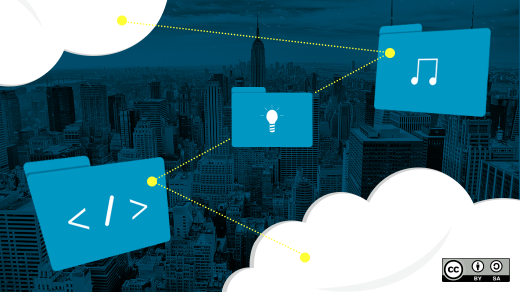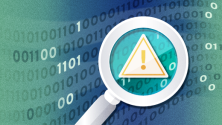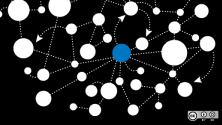Recently, I came across a study the caused me to think beyond the day-to-day world of code-slinging in which I live. According to the study Myth and the Reality of Manufacturing in America (PDF), conducted by Center for Business and Economic Research at Ball State University in Indiana:
"Almost 88% of job losses in manufacturing in recent years can be attributable to productivity growth, and the long-term changes to manufacturing employment are mostly linked to the productivity of American factories."
Just translate the term "productivity of American factories" into the word "automation" and you get the picture. Other workers are not taking jobs away from the gainfully employed, machines are.
This is not a new trend. It's been going on since before Eli Whitney invented the cotton gin. Industry creates machines that do the work of humans faster, cheaper, with more accuracy and with less failure. That's the nature of industry—nothing new here. However, what is new is the rate by which the displacement of human beings from the workforce in happening.
The U.S. Bureau of Labor projects that by 2024 the U.S. economy will need 50% fewer people installing and repairing electronics in cars, 42% fewer telephone operators, 26% fewer postal clerks, and 20% fewer parking enforcement officers. Or, to put it another way, cars will be better at self-repair, call routing technology will get better at conducting verbal conversations with humans, self-service postal machines will get better at taking care of human transactions in the post office, and parking meters will know how to write tickets.
Here's another point to ponder. As the quality and reliability of self-driving vehicles improve, it's not far-fetched to imagine self-driving trucks becoming the norm on the nation's highways. How many truck drivers will be displaced once self-driving trucks are everywhere?
Also, think about this: As Uber and Lyft mature in the business landscape and self-driving cars become commonplace, the ride-share companies will replace human-driven vehicles with self-driving vehicles. Then, Uber or Lyft will start to offer a pricing model that is a flat fee for 24/7 service with unlimited mileage. So, to keep it personal, imagine Uber or Lyft offering me a deal in which I pay $150 a month for them to take care of all my driving needs. Or, I can continue to pay the $400 it costs me for my car lease and insurance coverage (yes, I lease a modest vehicle). Which way do you think I will go? Spend $400 for the pain of driving in a car in LA traffic or spend $150 to get where I need to go while I read a book in the back seat? Me? I'd fork the car over in a New York minute.
As if this isn't startling enough, try this one out: Walk down your street. See all those cars parked on the side of the road. In the near future, using the Uber/Lyft automation scenario, they won't be there very much longer. Any car made will be used 24/7. All this translates into fewer cars doing more work—and less demand for cars means fewer cars being made. Fewer cars being made means fewer people working making cars. You get the picture.
What about software?
Take a scenario that is part of my day-to-day coding world, logging. In the old days, you'd log to a file on disk. Over time, that log file got so large that you would need to move the file manually onto an archive disk so as to not eat production space. Somebody came along and said, "Hey, I can write a piece of code that watches the size of the log file and moves it automatically when the file gets too big." So much for the person doing the manual file move. But, still, you had to keep adding capacity to the archive machine, which typically meant a person walking down to the server room and twiddling with some hardware. Then someone had a great idea, "Let's use this thing called cloud storage as a back-end for a log collection service. We'll leverage the elastic capacity features of cloud storage and write out logs to that service. Hell, why make a service? We'll subscribe to an existing one and save the development costs." Thus, people no longer needed to monitor capacity, move files, write incidental scripts—any of it. In terms of logging, a bunch of automation is doing the work a lot of people used to do. Is this progress? Might be. But the trend is unmistakable, and so much so that I have no problem imagining a future in which 90% of work that used to be done by people is done by low-cost, automated, robotic labor.
We've always been on our way to automating everything. The only difference between then and now is that now we are really, really close to full automation. Asking the question, "What will we do when everything is automated?" is no longer fantastic, it's essential.
So what will we do?
"Simple," you say. "We'll retrain the displaced workers." Really? Many of us in the software game know that notion of retraining is a joke. If you're not constantly learning the new stuff, you're out of work. For a knowledge worker, continuous learning is an ongoing requirement for commercial viability, and the baseline from which you are learning is very high. In other words, you need to know a lot to get the basics of how to write a deployment script in Ansible that runs against AWS (Amazon Web Services), and even as you're learning that basic technique, somebody is already creating a technology that will make the technique you're learning obsolete.
So back to the question, what do we do?
First, let's do the obvious. When near total automation means there is no longer any work for most people to do, we need to come up with other means of survival. Survival in the modern world means having money to live on, and Charles Murray suggests in the Wall Street Journal that we plan to implement Universal Basic Income. Finland is starting a pilot project based on the idea and other countries are experimenting, too. Universal Basic Income is a program in which citizens of a state are provided with a base income on which to live. Some programs vary this basic income according to income produced otherwise. The common thread is an understanding that jobs are not plentiful and that depending on one for survival is not realistic.
The notion of Universal Basic Income is not that new. It's been around since the 1960's, when it was proposed by folks such as Milton Friedman as the negative income tax.
Second, we need to address the elephant in the living room: the birth rate. In the old days when agriculture and small, private farming was a major industry in the United States, having a large family made sense. You needed your family members to work the land. As the Industrial Revolution created demand for factory workers regardless of age, large families still made economic sense, but now the trend is that we need less people to do more. Thus, having large families becomes counterproductive to the economy overall. Yes, there are certain sensibilities out there that encourage large families and adherents to such thinking have large families as a matter of choice. Still, many families end up with large families for reasons other than intention. It just sort of happens.
Thus, to ensure that people have a chance at a viable existence in a fully automated world, implementing an effective family planning policy and practice becomes as useful to the society of the near future as the anti-smoking efforts that started in the 1960s does today. I am not advocating draconian, government-mandated family planning. We cannot legislate family size any more than we could smoking behavior. Rather, we need to create a social condition in which the wisdom of the idea prevails.
Finally, we need to address the need for human dignity in a fully automated world. For better or worse, we need to accept that in the near future the traditional relationships among demand, productivity, and income no longer may be applicable. The old days of workers making stuff and getting paid for their products or labor are coming to an end. Yet, one of the intangible benefits of the old days was the dignity and satisfaction that went with pulling your weight and earning your keep. Being able to provide for yourself and your family defined your worth in your own eyes as well as those around you. This need for dignity will remain no matter how technical and economic landscapes evolve.
When I started doing the research for this piece, I asked others in the know to respond to the prospect of a world that is fully automated. One of the people I talked to was Phillipe Kahn, founder of Borland, Starfish Software, LightSurf Technologies, and most recently, Fullpower Technologies.
"I remember being in India and watching a construction site: lots of people, elephants, activity. I asked, 'Why don't you all use bulldozers and tractors and prefabricated concrete parts?' The answer was enlightening: 'How would this community make a living with dignity?' That's the whole paradox that we are dealing with: productivity versus dignity for communities that could be unemployed for generations," said Kahn.
Work vs. labor
There is a difference between work and labor. Work is an activity a person does to give one's life meaning. Labor is what a human does to survive. In the old days, work was your avocation and labor was your vocation. Some people were fortunate enough to have their activities be both avocation and vocation. Others went to work in factories, farms, and offices to earn a buck. They pursued other interests at other times. But whether you sang in the New York City Opera full time or in the choir on Sunday morning, the dignity of your work, the bringing music to the ears of other humans, was in full force.
So the final part of answering the question, "What do we do when we've automated everything?" is this: Preserve the dignity of the person and the community. A fully automated world will be a wealthy world unless we blow it up. Productivity produces wealth—that's the way it is. Regardless of who is or what is the owner of the wealth—government, corporation, or private citizen—sharing will become more important than ever. Concretely, this means allocating a significant amount of money to people and organizations that do work that has little or no commercial value, but extraordinary amounts of human value. When it comes to commercial value, the machines will have that end of the economy covered and then some. However, stuff that has little commercial value—curing low occurrence diseases, space exploration, academic research, expanding the arts—this is where human activity can excel.
In the old days, we had a notion called the commonwealth, which is a shared space where our individual assets grew. We shared some to get some. In the automated future, it might have another name. Regardless of the name, it will be a place where humans work with dignity in communities and most labor is left to automated robotics. If not, the common thread of our individual survival might indeed be nothing more than alms for the poor while automation creates wealth for a few.
Bob Reselman will deliver the talk What Do We Do After We've Automated Everything? at SCALE 15x.
This article originally appeared on DevOps.com. Reposted with permission.







1 Comment